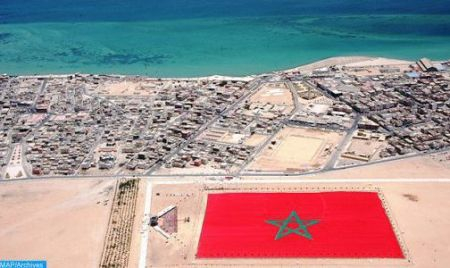Swiss Think Tank Member Highlights ‘Generous Character’ of Morocco’s Autonomy Plan
Morocco’s autonomy initiative for the Sahara stands out for its generosity, especially in terms of provisions guaranteeing the exercise of legislative powers, said Marc Finaud, senior adviser at the ‘Geneva Center for Security Policy’ think tank. Speaking at an international research seminar organized by Morocco’s Permanent Mission to the UN on territorial autonomy and the devolution of legislative powers, Finaud reviewed the guarantees established by the Moroccan plan in terms of the exercise of legislative powers under Articles 5, 12, 19, 20, 22 and 24. In this regard, he recalled that on April 11, 2007, Morocco presented to UN Secretary General its “plan for the negotiation of an autonomy statute for Sahara region” in order to break the deadlock in negotiations on regional dispute over Sahara, noting that the Security Council has described this plan as “serious and credible”, in its successive resolutions. Morocco’s autonomy plan enjoys growing support from many countries that recognize its importance in achieving a political solution to the regional dispute over the Moroccan Sahara, observed Finaud, who highlighted the reform momentum initiated by the Kingdom for the economic, social, cultural, environmental and human development in the southern provinces. He mentioned, in that regard, that Morocco launched in 2008, advanced regionalization project with the aim to promote citizen participation, democracy and decentralization and to facilitate social and cultural development as well as the modernization of state structures and improved local governance. This reform was then enshrined in the Constitution of 2011 which adopted the principle of autonomy of the regions and granted them, among other things, the primary jurisdiction in economic, social, cultural and integrated development, he said, noting that this process has introduced mechanisms for dialogue and consultation to involve citizens and NGOs in the preparation and follow-up of development programs. Regarding legislative powers, the autonomy initiative contains several provisions, Finaud pointed out, adding that Article 5 stipulates that the populations of the Sahara manage their affairs democratically, through legislative, executive and judicial bodies with exclusive powers. Under democratic principles and procedures, and acting through legislative, executive and judicial bodies, the populations of the autonomous region of the Sahara exercise, within the territorial limits of the region and under Article 13 of the initiative, powers over various areas such as local administration, economic development, investment promotion, budget and taxation, public works as well as social and cultural sectors. He also noted that under Article 19 of the initiative, the parliament of the autonomous region of the Sahara will be made up of members elected by the various Sahrawi tribes and of members elected by direct universal suffrage, by the population of the region. There must be an adequate representation of women within the Parliament of the autonomous region of the Sahara. The panelist also cited Article 24, which states that the laws, regulations and court decisions issued by the bodies of the autonomous region of the Sahara must be consistent with the Statute of Autonomy of the Region and the Constitution of the Kingdom. Leading experts, researchers and academics from Switzerland, France, Spain, the United States and Mauritius moderated this international research seminar. The event was attended by about fifty diplomats, including several ambassadors in New York, senior UN officials and media accredited to the United Nations. This meeting offered the opportunity to compare the autonomy initiative proposed by the Kingdom of Morocco for the Sahara region with other autonomy experiences in the world, especially in terms of devolution of legislative powers in autonomous regions. International experts had the opportunity to share experiences from the Canary Islands, New Caledonia, Puerto Rico and Rodrigues Island.

